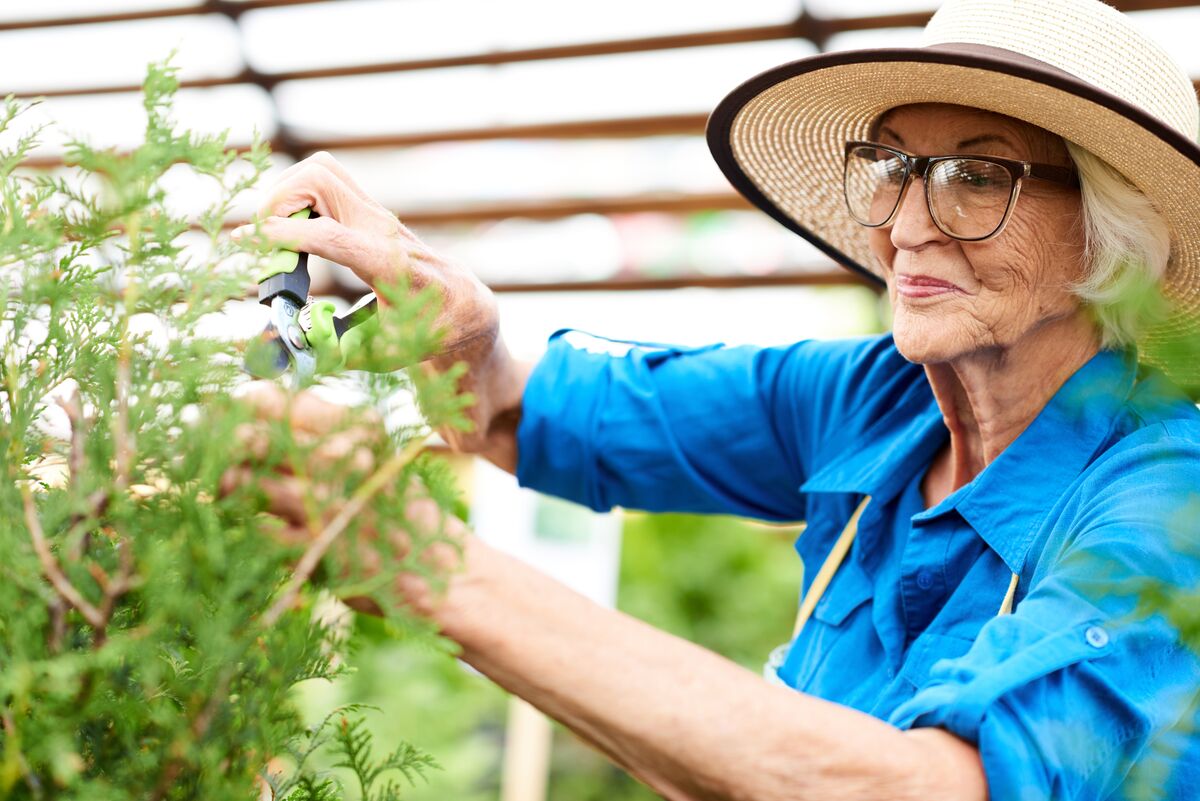“I shall find out thousands and thousands of things. I shall find out about people and creatures and everything that grows, and I shall never stop making Magic. I’m well, I’m well.” ― Frances Hodgson Burnett, “The Secret Garden”
If you read “The Secret Garden,” you’ll remember the young characters found magic and mental and physical growth in the process of gardening, in digging in the earth and watching the garden bloom. And many people feel a spiritual connection as they dig in the earth. Whether or not you believe in magic as an adult, there are some unassailable benefits of gardening that may inspire you to reach for a spade.
5 Benefits of Gardening for Seniors
1. Vitamin D
Just like your plants, you also need sunshine to thrive, and activities like gardening inspire you to get outdoors. Sun exposure, along with food and supplements, helps your body produce vitamin D. Vitamin D is a key component in absorbing calcium, which helps keep your bones strong and prevents osteoporosis.
Even when you’re spending time outside, soaking up your vitamin D, it’s still important to protect your skin. Wear sunscreen and a hat, and stay hydrated.
2. Mood Boost
Research shows that gardening is one of the activities that most effectively benefit wellbeing — along with biking, walking, and eating out. Any type of gardening provides positive mental health effects, but growing vegetables seems to have the strongest impact. The act of tending your plants and seeing them grow and flourish can make you feel more nurturing and give you a greater sense of control in your life.
3. Exercise
Certain gardening tasks, including hand weeding, filling pots with soil, mixing soil and transplanting plants, offer low-intensity activity. Other activities, like digging, raking, mulching and turning compost, require moderate-level exertion. This means gardeners who spend 30 minutes in their garden most days meet the necessary physical activity recommendations from the Centers for Disease Control and Prevention (CDC). Getting enough regular exercise helps you build strength, maintain a healthy weight and get better sleep.
4. Heart Health
Swedish researchers discovered a strong correlation between regular gardening and a lower risk of heart attack or stroke. Gardening can be a valuable addition to an active lifestyle and a nutrient-rich diet in maintaining your cardiovascular health.
5. Better Memory
Results of a Korean research study showed that 20-minute intervals of gardening could help dementia patients grow new nerves in the brain, strengthening memory. Horticulture therapy is a popular subject for dementia research. While more data needs to be collected, initial findings indicate that working productively in a garden can be an effective treatment for dementia.

Tips for New Gardeners
1. Select Indigenous Plants.
When deciding what to grow in your garden, choose from among the plants native to your area. Native plants require less fertilizer and less water, and they provide food and shelter for local wildlife. Plus, native plants celebrate the natural heritage of your area and contribute to its unique beauty.
2. Choose Plants Based on Time Commitment.
If you want to experience the mental and physical benefits of gardening but don’t want to overextend yourself, opt for plants that don’t require constant care. Gardening should be enjoyable, not too taxing. Most plants come with care cards when you buy them, but if you’re having trouble discerning how much attention a plant may need, ask a salesperson.
3. Consider the Sun.
If you’re planting a garden bed that gets full sun, you’d choose different plants than if you’re putting planters on your shady patio. Check the plants’ care cards to see how much exposure they need.
At Canterbury Court, we want to help our residents live active, fulfilling days and reap all the benefits of gardening, which is why we offer both personal gardening plots and an orchid greenhouse. Residents can get their hands dirty and enjoy seeing the results of their efforts. We’re continually impressed by the expertise some of our residents demonstrate, as well as their willingness to offer advice and encouragement to their neighbors.
Plus, if you don’t feel you have a green thumb, our campus sits among 10 acres of a protected wildlife sanctuary. A stroll along the quiet walking paths allows you to experience the mental health benefits of connecting with nature. To find out more about our well-rounded approach to senior wellness, reach out to us. A member of our team would be happy to answer any questions.

